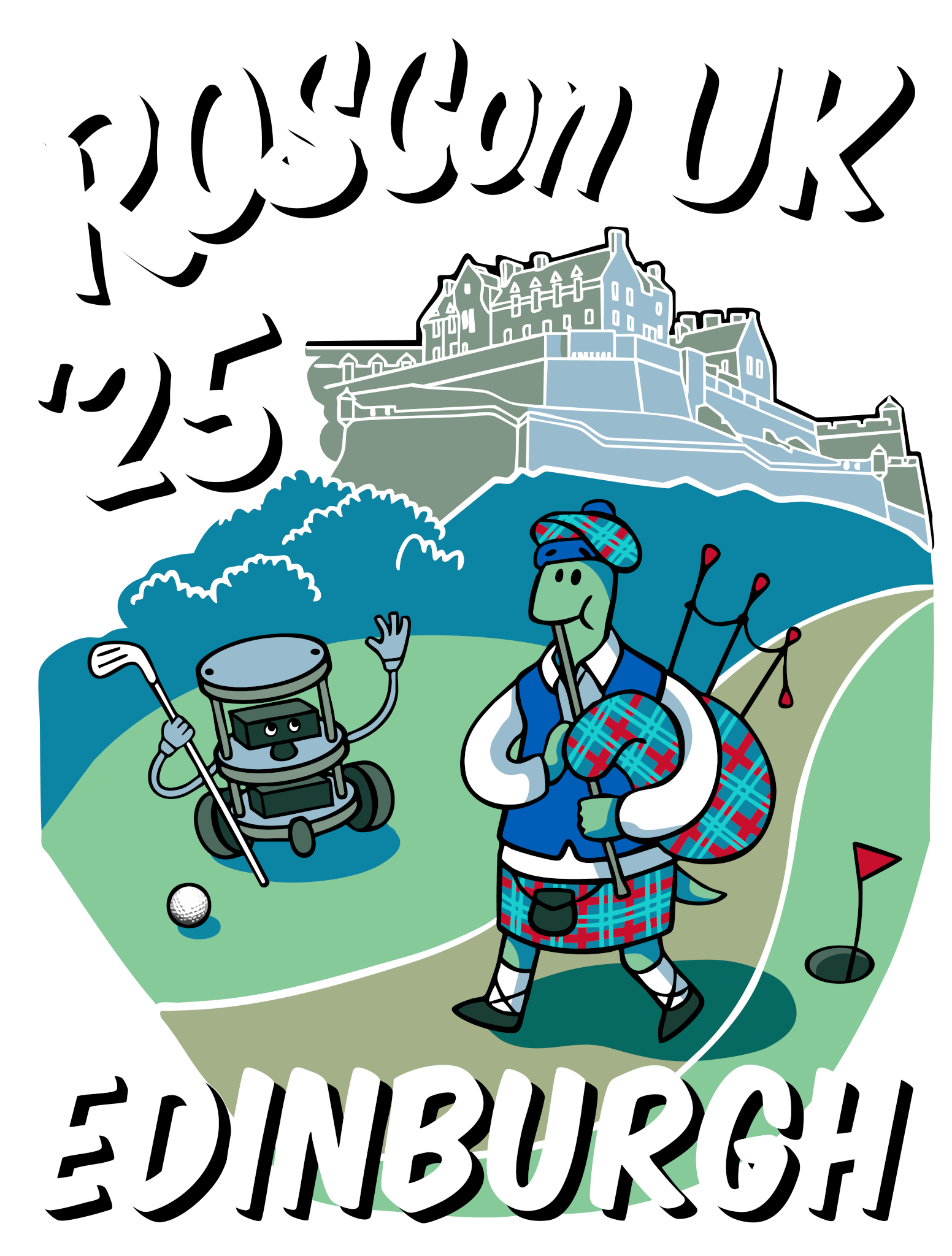

Full write-up + talks & panel video on ROS Discourse: [link]
Teaching robotics is challenging due to complex tooling, steep learning curves, and the need to balance theoretical depth with hands-on practice. The half-day “mini-conference-in-a-workshop” convened over 40 educators, students, and developers to exchange effective methods and practical strategies for teaching with #ROS2.
Teaching robotics is uniquely challenging. Between managing complex tooling, navigating steep learning curves, and balancing theory with hands-on skills, many educators struggle to deliver effective robotics education. ROS 2 offers immense power, but it’s not always easy to teach.
This half-day workshop brings educators, students, and developers together to share honest experiences of teaching robotics with ROS 2. Through lightning talks, demos, discussions, and breakouts, we'll explore what’s working, what isn’t, and how we can better support each other. Our goal: to build community, share tools, and improve how we teach robotics.
As ROS 2 continues to evolve, so too do the ways it's being taught—in universities, industry training programs, outreach efforts, and informal communities. This half-day workshop brings together educators, curriculum developers, tool/platform creators, and students to share real-world experiences in teaching robotics with ROS 2.
The workshop will feature short talks, panel discussions, interactive sessions, and practical demos, all centered around key questions:
Our goals:
This workshop is for:
Attendees will leave with:
| Session | Time | Description |
|---|---|---|
| Welcome & Workshop Goals | 14:30–14:40 | Framing the workshop themes and introducing the team and agenda. |
| Lightning Talks (Part 1) | 14:40–15:20 |
4 short talks (~10 mins each + Q&A). Presenters: • Dr Vijay Pawar • Dr Rafaello Bonghi • Prof Sabine Hauert • Prof Marc Hanheide |
| Lightning Talks (Part 2) | 15:20–16:00 |
More short talks on ROS education. Presenters: • Alexander Enoch • Martin Klomp • Riccardo Tellez • Dr Ingo Keller |
| Break & Networking | 16:00–16:15 | Coffee and snacks. Informal discussions and networking among attendees. |
| Demo Showcase | 16:00–16:40 |
Live or semi-live demos of teaching platforms and tools. Examples include: • Robot kits, digital twins, RViz-based tools • Open course frameworks and simulators • Attendee 2-minute informal demo slots |
| Interactive Panel & Audience Q&A | 16:40–17:15 |
Moderated panel with educators, students, and developers. Topics: • Student engagement strategies • Open-source vs commercial tools • Inclusive and accessible robotics education |
| Collaborative Breakouts & Discussions | 17:15–17:45 |
Small group discussions with prompts such as: • Designing a ROS 2 curriculum from scratch • Gaps in the ROS teaching ecosystem • Major challenges in ROS education Groups will report key insights. |
| Wrap-up & Next Steps | 17:45–18:00 |
Summary of insights and discussions. Feedback gathering and information sharing. Option to join ROS Education interest group or mailing list. |
| Presenters | Title | Description |
|---|---|---|
| Dr Vijay Pawar | TBD | TBD |
| Dr Rafaello Bonghi | TBD | TBD |
| Prof Sabine Hauert | Using ROS in education and research - hurdles and opportunities | In this talk I'll explore the different levels of ROS2 use in education and research, common pitfalls, opportunities, and open questions to help adoption. |
| Prof Marc Hanheide | A robot in a Box: Adventures in GPU-accelerated ROS2 devcontainers for education and assessment | We have developed a comprehensive GPU-accelerated ROS2 development environment delivered as a DevContainer, featuring a virtual desktop with VirtualGL and NVIDIA runtime support for 3D acceleration if available. This containerised solution runs seamlessly across Windows, Linux, and Mac hosts, providing BSc robotics and computer science students with a fully configured development environment in under three minutes from initial setup. The platform includes web-based desktop access, eliminating complex local installations whilst maintaining professional development workflows through Visual Studio Code integration. Our implementation leverages Zenoh bridging technology to connect the containerised development environment to real-world robots, enabling students to seamlessly transition from simulation to physical hardware interaction. I will share lessons learned from deploying this solution in production teaching environments, along with our open-source repository template and comprehensive resources for replication at other institutions. |
| Alexander Enoch | The good, the bad, and the terrible WiFi - Learnings from putting robots into schools | Robots are fantastic tools for schools, and useful not just for teaching robotics and coding, but also to encourage a broader interest in STEM subjects. This talk will cover some of the theory behind why that is, and how active learning and constructionist learning techniques can empower learners using robots. I'll also talk about some tips and learnings from our last 10 years of getting robots into classrooms - including some things that really tripped us up! |
| Martin Klomp | Beyond Simulation: Lessons from Using the MIRTE Robot in Education | At TU Delft we use the open-source MIRTE robot across bachelor- and master-level courses. While simulations are valuable, real robots provide unique learning opportunities. In this talk I will share how we balance simulation and hardware depending on the learning objectives and highlight the key challenges we faced along the way. |
| Riccardo Tellez | The importance of mixing simulations and real robots in robot education | In this talk I will explain: 1) the reasons why educators must not skip practice with simulators nor with real robots in their lessons. 2) the advantages of each one in the educational process. 3) and how to implement a simple system that allows the teacher to provide both experiences with minimal preparation |
Please find more details on the ROSCon UK website: https://roscon.org.uk/2025/ .